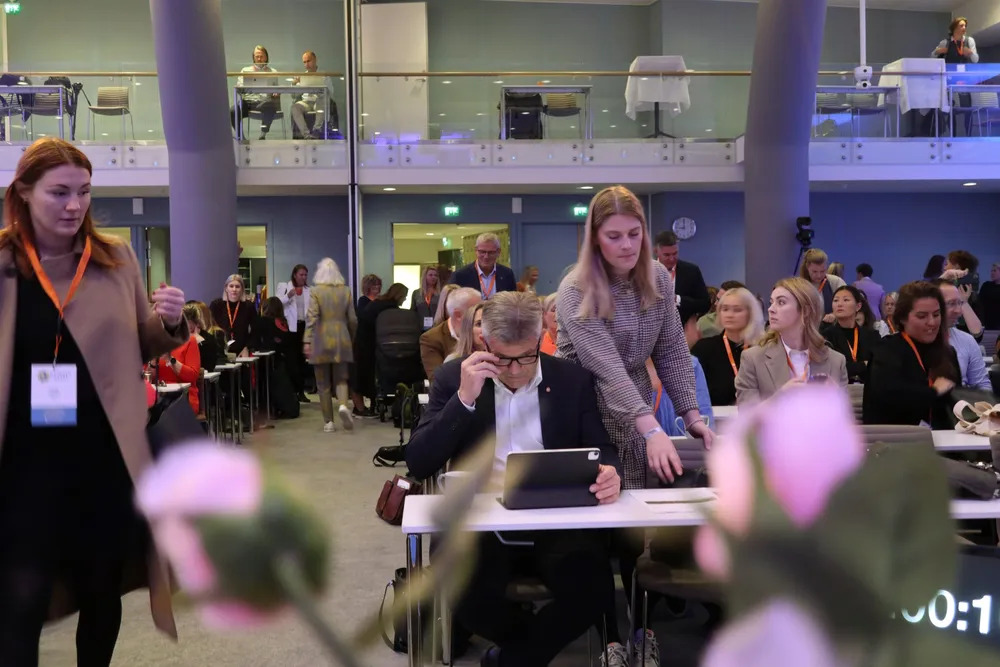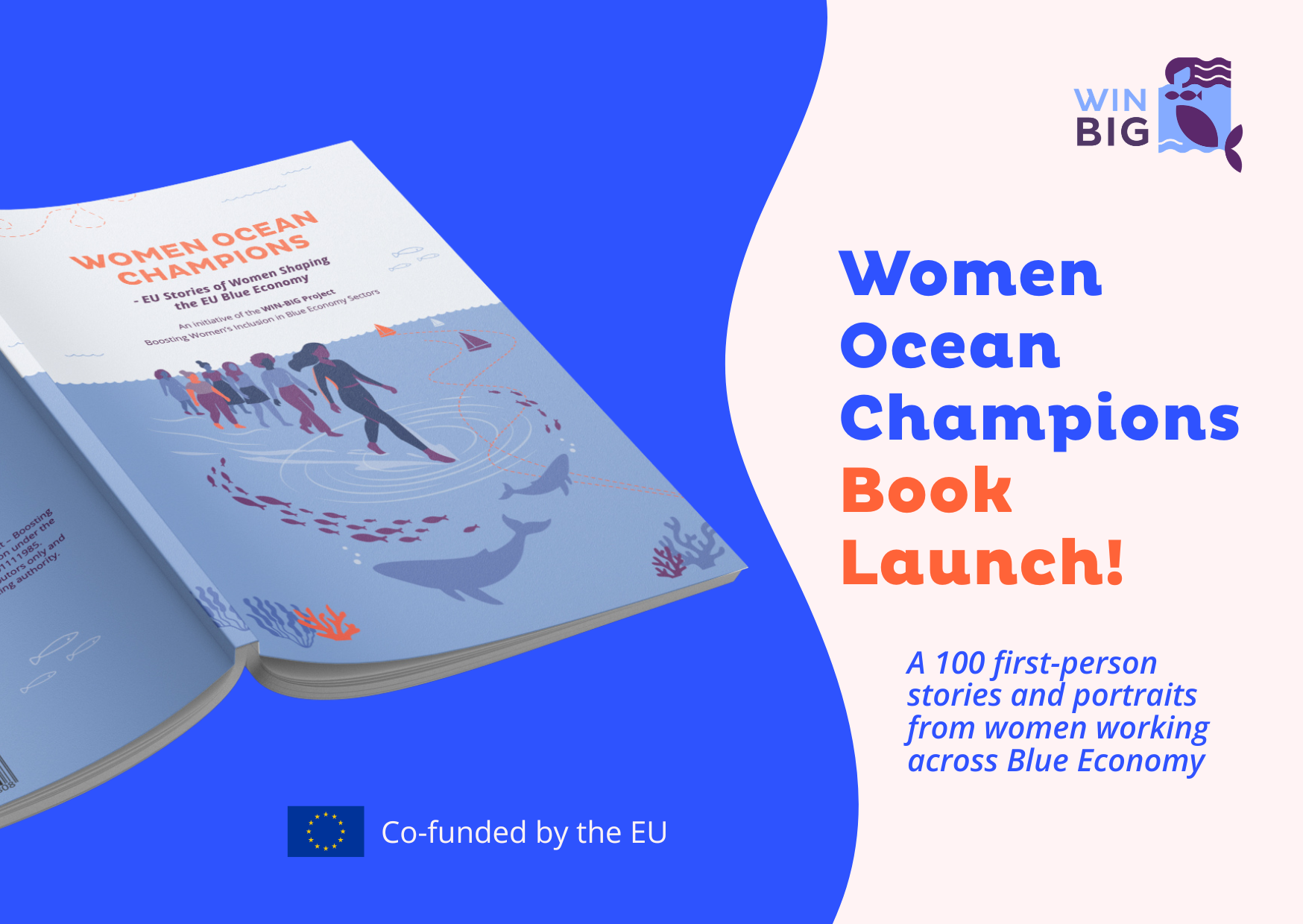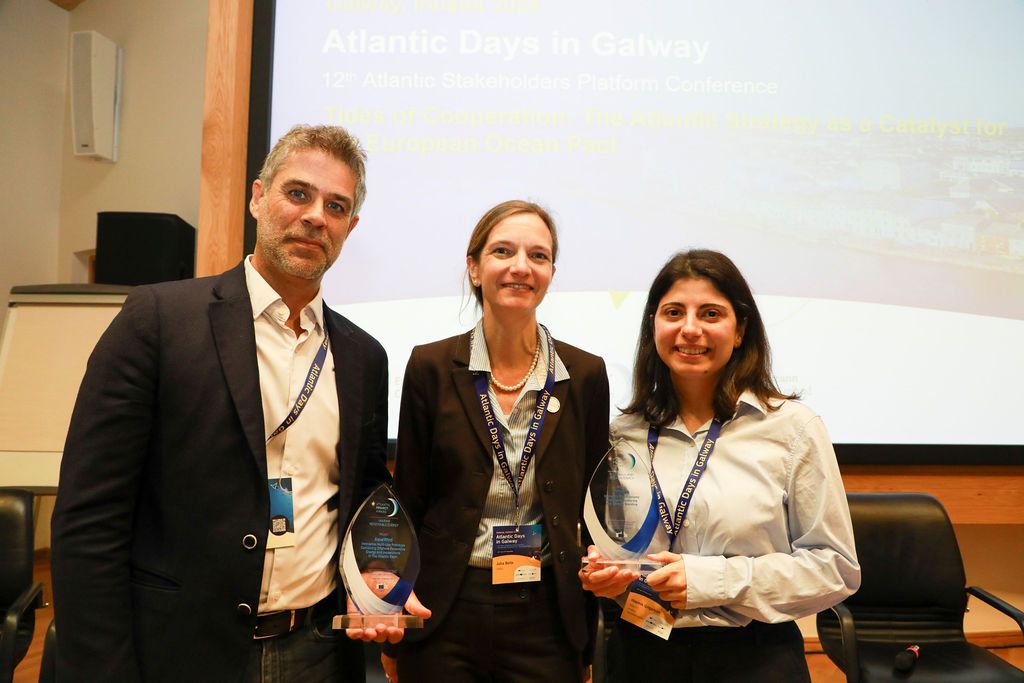"About taking care of the entire crew" a chronicle by Elisabeth Solvang

By Elisabeth Solvang, Head of Strategic Communications at NCE Blue Legasea
Original article published on FIskeribladet in Norwegian. (Photo: Ketil Svendsen)
Looking at it from a broader perspective, women in the fishing industry are still conspicuous by their absence.
The EU project WIN-BIG has identified the reasons and also outlined the necessary actions. But perhaps most importantly, we are aware of the following questions: Do we really need more women on deck?
Before I answer the question, I would like to note something that most people have observed, namely a significant increase in applicants for fisheries studies in recent years. Nevertheless, there is a need for more fishermen in Norway. Even though more people want to become fishermen right now, according to the Office of the Auditor General, there was a decline in the number of registered fishermen of as much as 35% in the period 2004-2018. In other words, we need to replenish. We know that the fishing industry is a key sector in the blue economy, both here at home and internationally.
Increased profitability
It is therefore a paradox that, despite the steady rise in the number of female fishermen over many years, most men remain in the industry. In 2024, there were 501 registered women with fishing as their main occupation, which constitutes 5.3% of the total number of full-time fishermen. However, having gender balance is about more than just more hands. Extensive studies support the notion that gender balance has numerous benefits. We are talking about increased profitability, improved competitiveness, higher levels of innovation, a better working environment and employee satisfaction, a strengthened reputation, and the attraction of talent, to name a few.
So, to answer my rhetorical question in the introduction, yes, we need more women on deck. It's time to recognise that the lack of gender balance is not only a question of equality, but also a question of value creation.
Findings that commit
The EU-funded project WIN-BIG (Women in Blue Economy Intelligence Gathering and Capacity Boosting) was launched in May 2023 with the aim of making Europe's blue economy more gender-balanced and sustainable.
The consortium consists of 14 partners from nine countries – Norway, Portugal, Ireland, Spain, Italy, Greece, Germany, Poland and Bulgaria. Our marine cluster, NCE Blue Legasea, is the Norwegian partner in the project.
In May, WIN-BIG stakeholders from across Europe met in Cork, Ireland. The results of a recent survey were presented. The findings are compelling. The survey includes 1,124 respondents and provides a nuanced picture of the gender balance in blue industries, across borders.
Concrete barriers
The data shows, among other things, that women are still clearly underrepresented, especially in traditional and technology-intensive sectors such as fisheries and marine renewable energies.
Among respondents, 20 percent state that there are specific barriers that prevent women from reaching senior management positions.
One thing that can be noted from the survey is that 73 percent of women who have left blue industries cite lack of career development as an important reason.
A full 59 percent point to low support from management, and 51 percent highlight a lack of flexibility and working hours as crucial.
Management, role models and strategies
Another key finding is the importance of visible female role models. When asked what it takes to recruit and retain women, support from managers, visibility and opportunities for professional development are highlighted.
At the same time, 60 percent respond that there is no dedicated strategy for gender balance in their own organization.
The survey also shows that there is room for greater efforts to combat discrimination and harassment. Although there is some recognition of the issue, there is still a long way to go before this is reflected in systematic measures.
Norway as a role model
Now we in Norway cannot decide how this issue is addressed in other countries, but we should set ourselves the goal of leading by example. What is encouraging from the survey conducted by WIN-BIG is that many of the challenges related to gender balance should be possible to do something about.
By being aware of what we do on a daily basis, for example, the experience of lack of career development can be reversed. Another measure is to highlight the strategy for gender balance in your own organization and show awareness from leaders, so that as a woman, or other minority, you experience support.
By being clear that gender balance is not only about equality, but also about access to expertise, innovation and sustainability, as well as improved profitability and competitiveness, we can help ensure that this insight is also implemented internationally.
The whole crew is needed
The fishing industry is committed to making the best use of resources. We cannot afford to let valuable resources go to waste. If we are to succeed in green and blue transformation, we must involve the entire crew, on land, on the bridge, in the wheelhouse and on deck.



